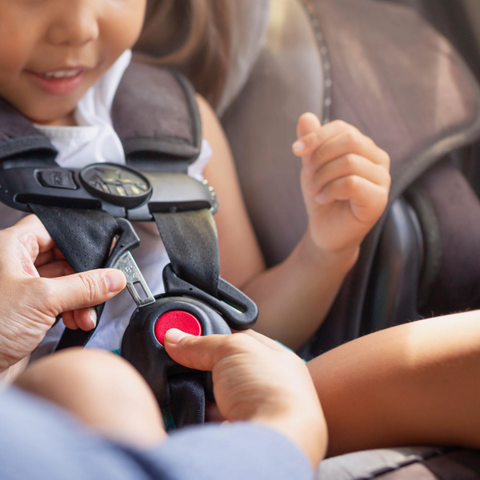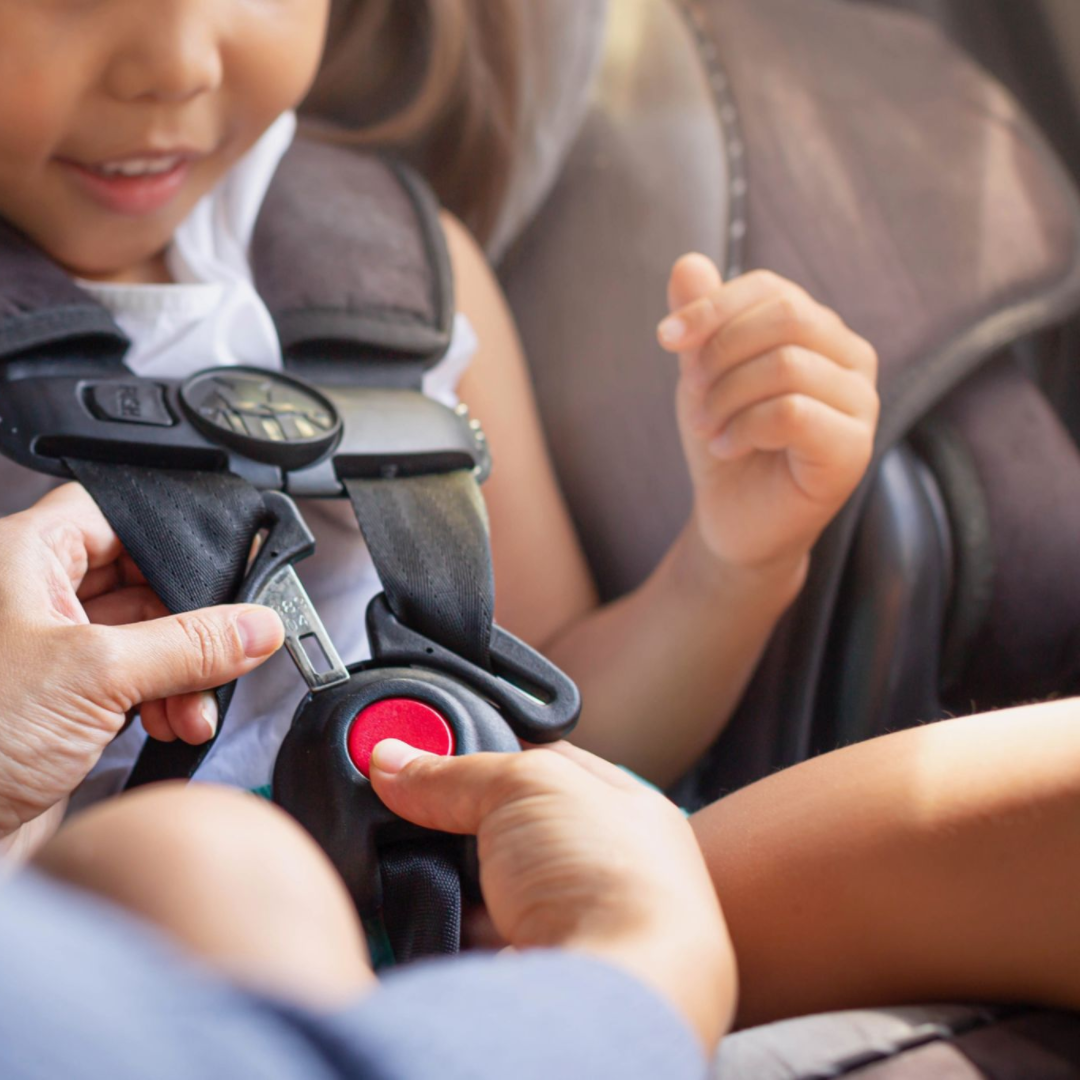Updated: 10 April 2025
Choosing the right child car seat for a child with special needs is a crucial decision that requires thoughtful consideration and up-to-date knowledge of safety regulations.
This guide provides key information and practical advice to help you choose a car seat that prioritises your child’s comfort, support, and safety.
Understanding Car Seats for Disabled Children
 Not all standard car seats meet the needs of children with disabilities. Specialised car seats with additional harnesses, postural support, or compatibility with wheelchair accessible vehicles (WAVs) may be necessary. It's essential to ensure the seat complies with the latest UK safety standards, including the R129 (i-Size) regulations for enhanced side-impact protection and height-based groupings.
Not all standard car seats meet the needs of children with disabilities. Specialised car seats with additional harnesses, postural support, or compatibility with wheelchair accessible vehicles (WAVs) may be necessary. It's essential to ensure the seat complies with the latest UK safety standards, including the R129 (i-Size) regulations for enhanced side-impact protection and height-based groupings.
Driving with a Disability
For families with a disabled child, comfort and safety during travel are top priorities. Accessible vehicles and modifications are vital to support secure and stress-free transportation.
Mobility and Accessible Vehicles
Wheelchair accessible vehicles (WAVs) include adaptations such as lowered floors, ramps, and specialist seating. These enable easier entry and provide safe seating options tailored to individual needs.
Assessments
Before purchasing a car seat, an assessment by a qualified occupational therapist or mobility advisor is essential. These professionals can recommend the most suitable car seat based on your child’s height, weight, postural needs, and medical conditions.
Specialist Child Car Seats
Children with complex needs often benefit from custom or specialised car seats. These might include swivel seats, extra padding, adjustable harnesses, or headrest speakers for sensory comfort. Always ensure the product meets UN ECE R44/04 or R129 standards.
Swivel and Slide-Out Seats
These options make transferring your child into and out of the car easier and safer—especially if physical handling is difficult or tiring for caregivers.
Spare Cushions and Headrest Speakers
Enhanced features like cushions can improve seating posture and reduce fatigue. Audio systems built into the headrest can help calm or entertain children with sensory needs during long journeys.
Features to Consider in a Child Car Seat
Seat Belt and Harness
Look for seats with multi-point harness systems, adjustable for size and fit, and tested for impact resistance. A 5-point harness is generally recommended for younger or more vulnerable children.
Adjustable Padding
Customisable padding can provide tailored support, especially for children with scoliosis, reduced muscle tone, or other physical differences.
Physical Support for Disabled Children
Support features like footrests, lateral supports, and reclining mechanisms help children maintain posture and avoid discomfort or fatigue.
Good Posture and Head Support
Postural stability is critical. Choose seats that offer ergonomic design and headrests adjustable in height and width to prevent slumping or hyperextension.
Trunk and Head Support
Children with minimal trunk control need additional support. Look for car seats with deep side wings, harness pads, and head support to maintain a safe seating position.
Wheelchair Accessible Vehicles and Car Seats
For children using wheelchairs, WAVs offer car seat alternatives that integrate with their existing mobility system. Some allow direct wheelchair transport, while others facilitate smooth transfer to built-in seating systems.
Supportive Seating System
Modular seating systems can be adapted to meet complex postural needs, ensuring the child is secure without sacrificing comfort.
Transferring from Wheelchair to Car Seat
Look for vehicles and car seats with features like swivel bases, sliding platforms, and compatible hoist systems that simplify transitions.
In Summary
Finding the right car seat for a child with special needs involves more than picking the safest option—it means choosing a solution that matches their physical, sensory, and medical requirements.
Always consult a specialist and ensure any seat you purchase complies with UK and EU regulations (UN R129/i-Size preferred).
FAQs
What laws apply to car seats for children with special needs in the UK?
All car seats must meet UK and EU safety standards (UN ECE R44/04 or R129/i-Size). If a child cannot use a standard seat due to a medical condition, a medical exemption certificate may be required.
Can I use a regular car seat if my child has minor physical needs?
Yes, if the seat provides sufficient support and meets legal standards. However, always consult a healthcare professional to confirm suitability.
Are specialist car seats available through the NHS?
Yes, in some cases. Contact your GP or occupational therapist to request an assessment. If eligible, the NHS may supply specialist seating or direct you to charities or mobility services that can help.
Do I need a wheelchair accessible vehicle to transport my child?
Not always. Some children can be safely transferred into a regular seat with the proper adaptations. However, a WAV is ideal for children who cannot be transferred comfortably or safely.
How do I get an exemption from car seat laws for medical reasons?
You’ll need a medical exemption certificate from your GP or paediatrician stating why a standard seat isn’t suitable. This must be kept in the vehicle at all times during travel.





Share:
How to Use Calming Music To Help Your Kids Sleep Better
Does Chickenpox Cause Vomiting?